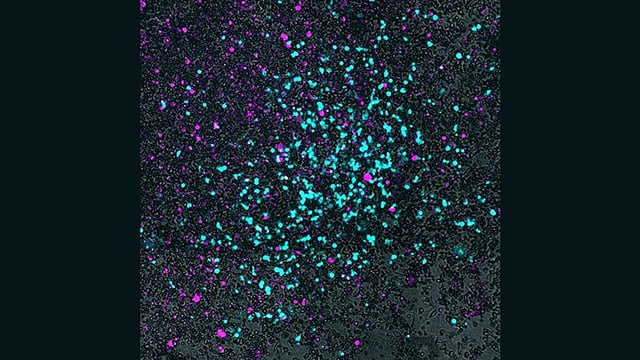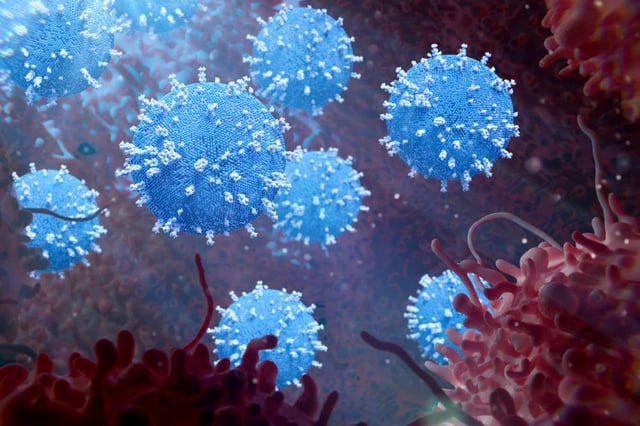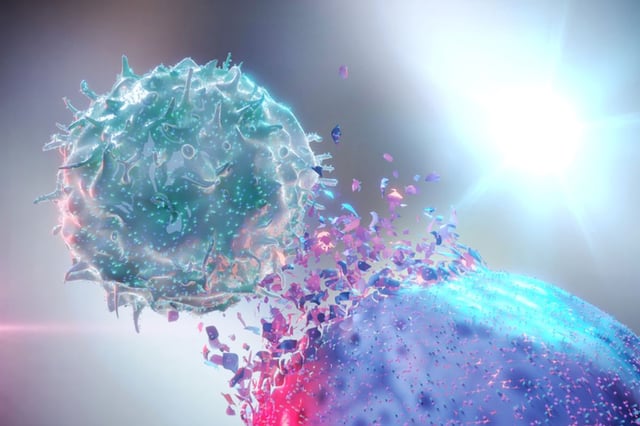Overview
- In Nature Biomedical Engineering, the Columbia team reports that CAPPSID extended the time for tumors to reach ethical end points from 11 to 21 days in immunocompetent mouse models.
- The bacteria-virus system bypassed circulating antiviral antibodies and cleared human lung tumor implants in a subset of treated mice.
- A synthetic safeguard restricts viral maturation to tumor sites by making Senecavirus A dependent on a protease supplied only by the engineered Salmonella.
- Researchers caution that RNA-virus mutation risks require additional genetic safeguards, broader evaluation across tumor types and validation in non-human primates.
- Ongoing efforts include adapting CAPPSID to bacterial strains with established clinical safety records and exploring combination with existing immunotherapies ahead of clinical trials.


